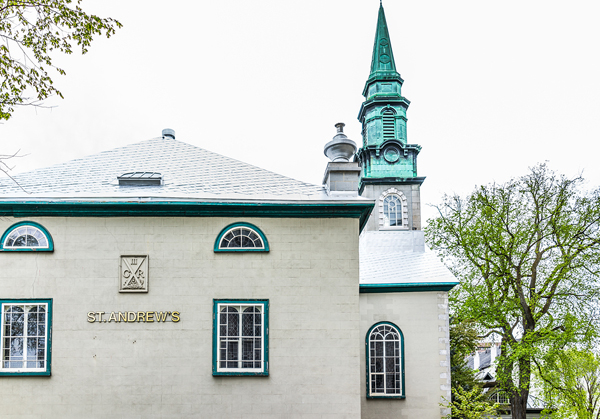Culture Shock in Canada
Summary: If you're planning a move to Canada, or have recently settled there, it's natural to encounter some culture shock as you adjust to your new surroundings. Our insightful article is designed to help you navigate this transition smoothly. It offers practical tips and draws on the experiences of fellow expats who have successfully embraced the cultural nuances of Canada.

Welcome to the land of the maple leaf, where the landscapes are as diverse as the people. Moving to Canada can be an exhilarating experience, filled with new opportunities and adventures. However, it can also bring about a sense of culture shock as you navigate through the nuances of Canadian life. Understanding the phases of culture shock, language barriers, potential cultural missteps, and heeding advice from those who've walked this path before can make your transition smoother. Let's explore what you might encounter as you adjust to your new home in Canada.
1. Culture Shock Phases
Adapting to a new country involves a series of emotional phases. Initially, you may experience the 'honeymoon' phase, where everything about Canada seems fascinating and exciting. As time progresses, the 'negotiation' phase may set in, where differences in culture, social norms, and perhaps language barriers become more apparent, leading to frustration. It's common then to enter the 'adjustment' phase, where you start to become more familiar with the Canadian way of life and begin to integrate. Finally, the 'mastery' phase is where you find yourself participating fully and comfortably in Canadian society. Remember, these phases are not linear and can vary in duration and intensity for each individual.
2. Language Learning Curve
Canada is officially bilingual, with English and French as the primary languages. If you're still mastering either of these, the challenge can vary depending on where you settle. In most of the country, English is predominantly spoken, while Quebec is primarily French-speaking. Smaller pockets of the country also have significant populations speaking other languages. Canadians are generally patient and accommodating to non-native speakers, and there are numerous resources available, such as language classes and conversation groups, to help you improve your language skills.
3. Cultural Faux Pas
As a newcomer, it's easy to inadvertently commit a cultural faux pas. Here are five to be mindful of:
- Ignoring Personal Space: Canadians value personal space. Maintain a respectful distance during conversations.
- Jumping the Queue: Patience is a virtue in Canada. Always wait your turn in line.
- Overlooking Indigenous Cultures: Acknowledge and respect the diverse Indigenous cultures and their histories.
- Misusing Slang or Language: Be cautious with slang and try to use it appropriately. Misunderstandings can occur.
- Not Embracing the Multicultural Ethos: Canada prides itself on diversity. Be open and respectful to all cultures.
4. Expat Advice on Culture Shock
Experienced expats often have a wealth of knowledge to share. Many suggest immersing yourself in the community as a way to combat culture shock. Join local groups, participate in community events, and try to establish a routine similar to the one you had back home. Another piece of advice is to embrace the Canadian weather, especially the cold and snow, by learning to ski or skate, which can also be great ways to meet people. Additionally, understanding Canadian humor, which can be self-deprecating and subtle, will help you connect with locals. Lastly, don't hesitate to ask questions; Canadians are generally friendly and helpful, and they understand the challenges of settling into a new culture.
Remember, moving to a new country is a significant life change, and it's natural to experience culture shock. However, with time, patience, and an open mind, you'll find that Canada's welcoming spirit and vibrant culture can make it feel like home.
About the Author
 Joshua Wood, LPC joined Expat Exchange in 2000 and serves as one of its Co-Presidents. He is also one of the Founders of Digital Nomad Exchange. Prior to Expat Exchange, Joshua worked for NBC Cable (MSNBC and CNBC
Primetime). Joshua has a BA from Syracuse and a Master's in Clinical and Counseling Psychology from Fairleigh Dickinson University. Mr. Wood is also a licensed counselor and psychotherapist.
Joshua Wood, LPC joined Expat Exchange in 2000 and serves as one of its Co-Presidents. He is also one of the Founders of Digital Nomad Exchange. Prior to Expat Exchange, Joshua worked for NBC Cable (MSNBC and CNBC
Primetime). Joshua has a BA from Syracuse and a Master's in Clinical and Counseling Psychology from Fairleigh Dickinson University. Mr. Wood is also a licensed counselor and psychotherapist.
Some of Joshua's articles include Pros and Cons of Living in Portugal, 10 Best Places to Live in Ireland and Pros and Cons of Living in Uruguay. Connect with Joshua on LinkedIn.
Additional Information:
- Canada Guide
- Healthcare & Health Insurance in Canada
- Members Talk about Healthcare & Health Insurance in Canada
- Best Places to Live in Canada
- Real Estate in Canada
- Guide to Real Estate in Canada
- Pros & Cons of Living in Canada
- Cost of Living in Canada
- Educational System in Canada
- 10 Things to Know Before Moving to Canada
- How to Buy a Home in Canada
- Pros and Cons of Living in Canada
- 2025 Guide to Living in Canada
- Pros and Cons of Living in Canada 2025




